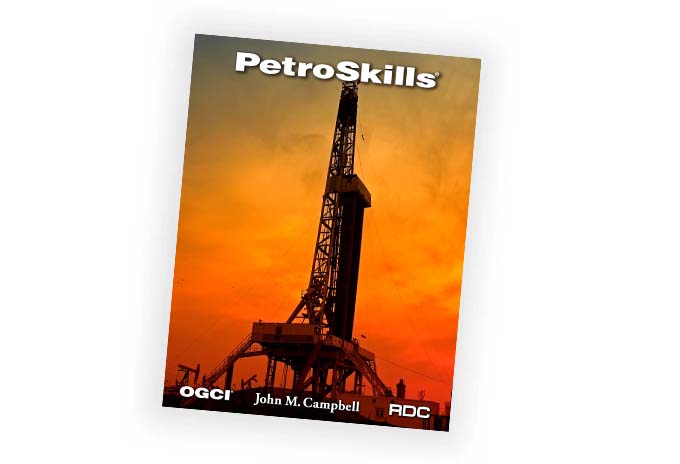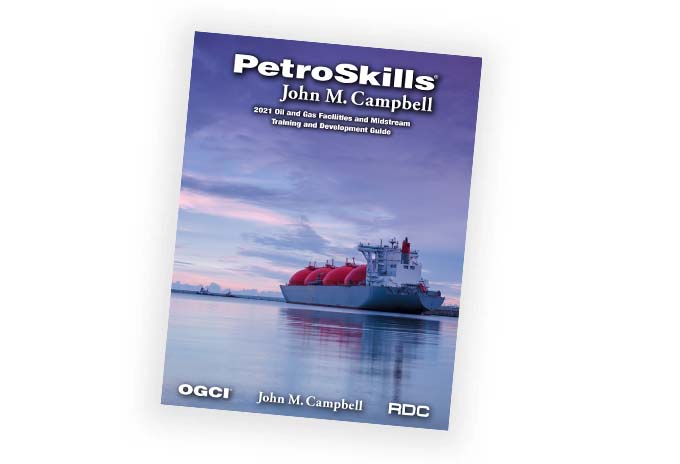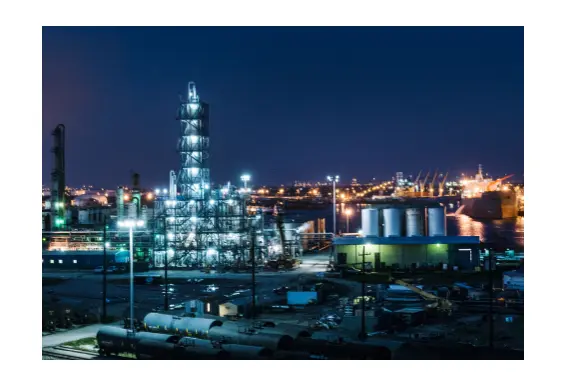Acid Gas Removal (Amine Focus) Fundamentals for Facilities Engineers - eLearning series
About the Course
This short course is from the industry-standard Gas Conditioning and Process course (G-4), known globally as the Campbell Gas Course.
This course includes:
- 4 hours prerequisite eLearning modules (participants may test out)
- 5.5 hours required eLearning modules
- 1 hour optional eLearning modules
- 6 hours virtual, instructor-led sessions (pre-recorded)
See the full G-4 Short Course listing
Acid gas removal is an important gas conditioning step that is required for natural gas streams that contain moderate to large amounts of carbon dioxide and hydrogen sulfide. The treated gas specification depends upon the downstream requirements, for example if it needs to meet a pipeline tariff specification or if it is flowing to a natural gas liquefaction facility where the specifications will be much more stringent.
Amine acid gas removal units are by far the most common technology used to remove these compounds from natural gas streams. This short course covers different acid gas removal technologies, with a strong focus on natural gas amine treating.
The self-paced online modules cover the following content:
- Acid Gas Removal - the various technology options commercially available
- Acid Gas Removal by Amines
- Types of Internals in Mass Transfer Columns
- Sulfur Recovery and Tail Gas Treating (optional)
- Acid Gas Injection (optional)
- NGL Product Treating (optional)
The virtual instructor lead lecture will cover simple methods to estimate the amine circulation rate for treating a gas stream with and without CO2 slip. In addition, maintaining a water balance in this process unit is critical. The method to estimate a water balance will be presented, as well as the key factors that affect the degree of sweetening (or acid gas removal) possible.
The problem assignment will allow the participants to practice the methods presented in the virtual instructor lead lecture. The problem set will provide additional insight into the practical aspects of amine treating.
The virtual, instructor-led debrief will work through the insights gained by in the problem assignment. Common operating problems and potential solutions will be discussed. During the round table discussion, the participants will be able to share their experiences and to ask detailed questions to the group.
Prerequisites (of which participants can test out) include Basic Conversion, Gas and Liquid Physical Properties, Pure Component Phase Behavior, Multicomponent Phase Behavior, Non-hydrocarbon Components Effect on Phase Envelopes, Fundamental Applications of Phase Envelopes, Water Content of Sweet and Sour Natural Gas
"Kindra was very engaging and knowledgeable on the topic." - Grad Process Engineer, United States
Target Audience
Production and processing personnel involved with natural gas and associated liquids, to acquaint or reacquaint themselves with gas conditioning and processing unit operations.
This course is for facilities engineers, process engineers, senior operations personnel, field supervisors, and engineers who select, design, install, evaluate, or operate gas processing plants and related facilities.
These short courses are ideal for mid-career professionals that have experience in the industry and have been transferred to a new role or assignment.
They are also ideal for new engineers that need to get up to speed quickly on the primary principles of gas processing with a deep dive on the issues of the short course topics.
You Will Learn
- Technology options for acid gas removal from natural gas streams
- Amine treating, and the factors that impact circulation rate, regenerator reboiler duty and circulation pump power
- Selective treating and where it should be considered
- Estimation of amine circulation rate, reboiler duty and water makeup requirements
- Key factors affecting the degree of sweetening in the amine unit
- Key performance parameters of amine units, common operating problem and potential solutions
Course Content
- NGL Extraction
- Stage Separation vs Fractionation
- Relative Volatility
- Operation of Key Fractionation Equipment
- Fractionator Design Concepts
- Types of Internals in Mass Transfer Columns
- Fundamentals of Fractionation Lecture
- Self-Directed Problem Assignment
- Problem Debrief and Experience Round Table
Product Details
Categories:
MidstreamDisciplines:
Gas ProcessingLevels:
FoundationProduct Type:
CourseFormats Available:
On-DemandAdditional
Request a Public Session
If you are interested in a public session of this course, please click the button below to request it.
Request Public SessionIn-House Training
This course is also available upon request as a private, on-site seminar. Contact us for details and pricing.
Request In-House TrainingNeed Help
Contact us if you have additional questions about how to register for or attend this course.
Contact Us



